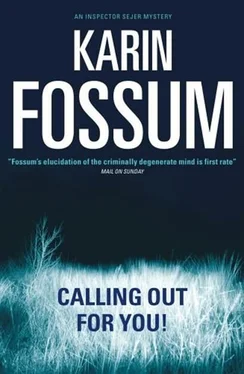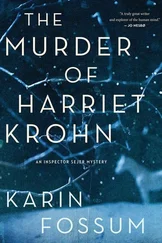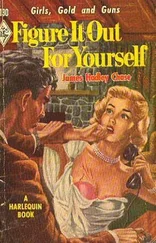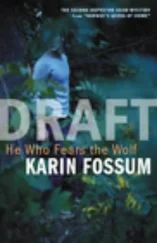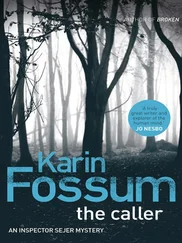"I must take my sister home," Shiraz said. His voice was no longer hard, but it was still firm. Then Gunder gave up. He collapsed in his chair, sobbing. He did not care what this man might think. His eyes were filled with tears. He had no more words left, they were all used up. Shiraz was silent while Gunder sobbed. The wall clock ticked relentlessly on.
Gunder did not know how long he had been sitting like this. He was vaguely aware of movement on the sofa. Shiraz had got up. Perhaps he was going to leave the house in protest and walk the long way back into town. But that was not what he did. He walked around the house. Gunder did not mind. He could snoop all he wanted. Out of the corner of his eye he saw that Shiraz had found the photograph of Poona and him above the desk. Then he went out into the kitchen. Gunder remained in his armchair, tears still flowing. Shiraz was now out in the hall, then he disappeared upstairs. Gunder heard his footsteps, light, cautious steps. He came back downstairs and went out into the yard. Gunder could see him in the garden. He stood under the apple trees, taking in the view. Finally he returned. Both cups of coffee were now cold. Shiraz sat down on the edge of the sofa.
"My sister can stay," was all he said. Gunder could not believe his ears and stared at him in amazement.
"She can stay," Shiraz repeated. "And you must pay. For everything."
"Of course," Gunder stammered. "I will pay for everything. Only the best for Poona!"
He glowed with relief and leapt out of his chair. Clumsily Shiraz started to retrieve something from his shirt pocket and finally extracted an envelope. He handed it to Gunder.
"Letter from my sister. All about you," he said.
Gunder took the letter from the envelope and unfolded the sheet of paper. Poona's writing, neat like embroidery with a black pen. However, he didn't understand a word of it.
"It's in Indian," he said, bewildered. "Do not understand."
"Is written in Marathi," Shiraz said. "Get someone to translate."
Then he got up and nodded to Gunder. "Back to Park Hotel," he said.
Gunder wanted to shake his hand. Shiraz hesitated, but he held out his hand too; it was lean and bony. He squeezed slightly harder than the first time. "Very nice house," he said, bowing.
Gunder was suddenly buzzing with plans. He would arrange Poona's funeral and had a thousand things to do. He did not have a date yet, but there were many things that needed organising. Which undertaker should he employ? What should she wear in the coffin? The brooch. He stood, holding his brother-in-law's hand, overwhelmed with gratitude.
"I have a sister, too," he said quietly. "In hospital."
Shiraz gave him a questioning look.
"Car accident," Gunder said. "She is not awake."
"Very sorry," Shiraz said softly.
"If you ever need anything," Gunder said, cheered by this snippet of sympathy, "you call me."
"I have a better picture," Shiraz said. "Beautiful picture of Poona. I send it to you."
Gunder nodded. They left the house.
He dropped Shiraz at the hotel. Then he went straight to Marie at the hospital. Sat by her bed and took her hand. For the first time in a very long time, he felt at peace.
Gunwald was stacking the shelves with jars of baby food. There were strong rumours going about that the police had been to see Gøran Seter several times. He did not understand that. What about the suitcase? Not that it was Einar from the café who had killed the poor Indian woman, but all the same. I did my duty, he told himself, and lined the jars up in perfect, straight rows.
He read the newspaper assiduously every day. After the murder he sometimes bought several papers. He made a strange discovery. It was new to him, as he had always had just one newspaper. What they wrote did not add up. One said that police did not have a single important clue. Another that they had a crucial sighting and were following a lead. It was hard to know what to think. And he was troubled by the business of the suitcase. It was full of Indian women's clothing. Should he call again and say that it was Einar? He crushed the packaging flat and carried it out into the back yard. Threw it into the container. He didn't want to be a part of this story in any way. When he came back in he sa Mode from the petrol station leafing through his newspaper.
"Do you have any currant buns?" he wanted to know. Gunwald fetched the buns.
"They're never going to get to the bottom of this," Mode said. "No doubt about it."
"What makes you think so?" Gunwald said.
"If they don't catch him right away, they'll never get him. Quite soon they'll have to cut back on the manpower and the case will be shelved. Meanwhile some other poor sod is murdered and that takes priority. Such is life."
Gunwald shook his head. "They sometimes solve cases like this several years later."
"Rarely," Mode said, opening the bag. He bit into a bun.
Gunwald was troubled by the idea that they might never catch the man responsible for this horrific killing.
"I hope it's no-one we know," he said darkly.
"Know?" Mode said doubtfully. "It couldn't be someone local. Who would it be?"
"Well, I'm sure I don't know," Gunwald said, turning away.
Mode munched his bun. "They're splitting up in the posh villa," he said.
Gunwald's eyes widened. "Who says?"
"Common knowledge. Lillian has started packing. I expect Einar will have to sell the house and live at the café. He'll need to stay open all hours if he's to survive. I imagine him in a sleeping bag in the back room. That bitch is no good," he said.
"Well, I don't suppose Einar was the life and soul of the party either," Gunwald said, wondering all the time what this might mean. "Perhaps he'll sell the café and move away. And it'll become a Chinese take-away."
"Fine by me," Mode said.
He took another bun from the bag. It was sponge-like and could be squeezed into different shapes. "Heard any news about Jomann?"
"On sick leave," Gunwald said. "Imagine everything he's been through recently. He spends most of his time at the hospital, I gather. Terrible business about his sister. There's a risk she could wake up and have the mental age of a two-year-old. Her husband can't cope with it. He goes to work as before and waits for them to call him."
"I dare say that's all he can do," Mode said. "But she probably won't wake up after such a long time. Either they wake up right away or they never do."
"I've heard of people who were in a coma for years," Gunwald objected.
"That only happens in America," Mode said and winked.
Then he trotted back to his petrol station. Gunwald sat thinking. It felt as if their community had been taken over. A foreign presence had seeped in and shaken them out of their everyday life. It made them elated, but at the same time anxious; at best it united them and gave them a feeling of belonging and at worst the fear took hold of them at night, in the darkness, under their duvets. All the while life went on, but in a new light. So they took more notice than they used to, as if they were seeing everything for the first time. Thus Gunwald felt that he was seeing Einar for the first time. And asking himself who he was. Gøran. And Jomann. Who had gone off by himself to a foreign country and found a wife. Linda on her bike, whom everyone looked at differently now and this was beginning to unsettle her. She had always been somewhat manic, but now her eyes flittered about nervously. It was clear what people were thinking. She should have kept her mouth shut. Gunwald shifted uneasily. It was the police's job to solve this case, with or without his help. He went out into the yard at the back to check the dog's water bowl. It was almost empty. He refilled it and put it back on the ground.
Читать дальше
